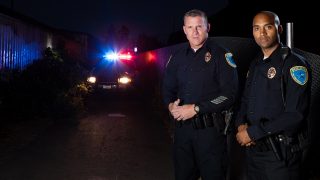
Timesheet day. It’s a dreaded event for supervisors and human resources departments everywhere. As the deadlines to process payroll approach, they scurry about furiously checking timesheets against policies, sending sheets back to the people who wrote them and, ultimately, making sure everyone gets paid on time. Why all the fuss? It’s at least partially due to the fact that the dos and don’ts of the process are governed by federal law.
The Fair Labor Standards Act (FLSA) is a federal law (that has been added to numerous times over the years) that says just what an employer can and can’t do with regards to their employees’ work hours. Ever wondered why we seem to universally accept the concept of a 40-hour work week? It’s because the FLSA says that’s how long a work week should be, and to encourage employers to limit work weeks to that amount, the law requires that they pay overtime (a time-and-a-half rate) for hours worked beyond that. This has generally encouraged most employers to accept a 40-hour work week as their target. While we could debate whether this arbitrary number is an effective one, I’d argue that it’s a good thing. The history books I’ve read make me pretty sure I wouldn’t want to be slaving away for 15 hours a day like someone out of the Industrial Revolution.
The public safety exemption gives local governments an incentive to overwork existing employees when they really need to hire additional ones.
There are, however, some exceptions to the 40-hour rule. There is a clause in the FLSA that allows employers to calculate hours worked for public safety personnel differently. That’s a nice way of saying that they can make cops work more without paying them overtime. There are several ways these calculations can be made, but the one most generally subscribed to seems to be the 86-hour rule. This means that a local government can make an officer work 86 hours during a two-week period before they have to start compensating them at a time-and-a-half rate. This is, of course, six more hours than any non-public safety employee would be required to work.
There are several possible reasons that this rule was put into place. Law enforcement officers may have simply been lumped into the larger category of public safety, and some public safety employees arguably live in a somewhat different environment than the average employee (some firefighters include sleep time as part of their work schedule and live at work for several days at a time). It may have also been political. The politicians who championed the law may have granted the exception so that local governments couldn’t claim it would leave them defenseless because they couldn’t afford the overtime necessary to keep their town safe. Regardless of the underlying reasons behind the exemption, I humbly submit that it needs to go.
Many local governments choose to voluntarily compensate their law enforcement officers in the same manner as their counterparts, but that seems to be the exception. The vast majority of organizations are constantly looking for ways to cut expenditures, and salaries are always the largest part of any budget. Many law enforcement officers are left being treated drastically differently than their fellow employees who build the roads, work in the front office or perform any of the other important governmental tasks. This isn’t just unfair; it’s also damaging to the profession as a whole. What’s damaging to the profession is, by extension, hurtful to the communities we serve.
The public safety exemption gives local governments an incentive to overwork existing employees when they really need to hire additional ones. Every new position comes with an exponential increase in expense. It’s much more than just salary. An additional officer means an additional health insurance premium, additional pension contributions and various other expenses for the organization. Therefore, it’s cheaper to require everyone to work more than to properly staff an organization. The fact that officers can be forced to work an “extra” six hours before being paid time and a half just makes the temptation for an organization to go this route even worse.
As I’ve discussed in previous articles, inadequate staffing carries with it a range of consequences. Cops who work more (and especially on the 12-hour schedules that are often utilized to compensate for inadequate staffing) are more prone to burnout and exhaustion. Cops who are overworked are more likely to get complaints or to use force. Many of the things that reformers are protesting about are linked to overworking cops. The public safety exemption in the FLSA makes it more likely that these overworked conditions will continue to exist.
The exemption (and the incentive it creates to understaff) also holds consequences for recruiting and retaining the next generation of law enforcement officers. Agencies are finding it more and more challenging to find and keep young officers. There are a myriad of reasons for this, but it would be a mistake to overlook the characteristics of the millennial generation. One thing we know is that millennials, generally, are concerned about a work–life balance. The life of a cop is marked by long days, endless nights, missed holidays and worked weekends. Much of this can’t be avoided, but a well-staffed agency can at least provide a degree of predictability to its employees. They can avoid calling people in on their scant days off for training. They can avoid the last-minute orders to report to work because a fellow officer called in sick. It’s difficult for an agency to give their officers a work–life balance, but it is impossible for an agency that’s understaffed and making up for it by using the “free overtime” allowed by the
FLSA exemption.
Finally, it’s simply a matter of fairness. Police officers work during their entire schedule, however long it may be. I am unaware of any agencies that allow their officers to sleep when they aren’t responding to calls. “Shift work is different” is one of the reasons often cited for not paying overtime to officers until they’ve worked six more hours than other employees. Shift work is different. Officers work holidays, while most other government employees do not. They work weekends. They work during the night, in a manner detrimental to their health and family life. Shift work is different, but not in a way that should allow officers to be paid less than other government employees. If anything, such conditions should dictate they be paid more.
The FLSA is well-meaning legislation meant to ensure employees are treated fairly and not overworked. Unfortunately, it exempts law enforcement from some of those protections. In a world that’s increasingly recognizing the importance of professional, quality law enforcement, this exemption has consequences for the public as a whole, as well as individual officers. The exemption provides an incentive for local governments to understaff their law enforcement agencies and compensate by overworking their officers. This can lead to higher incidences of complaints from the public and difficulties in retaining younger officers. Most of all, it’s simply unfair to officers. The public safety exemption in the FLSA needs to be changed to reflect the realities of law enforcement. Our communities will all be better for it.
As seen in the April 2021 issue of American Police Beat magazine.
Don’t miss out on another issue today! Click below:





